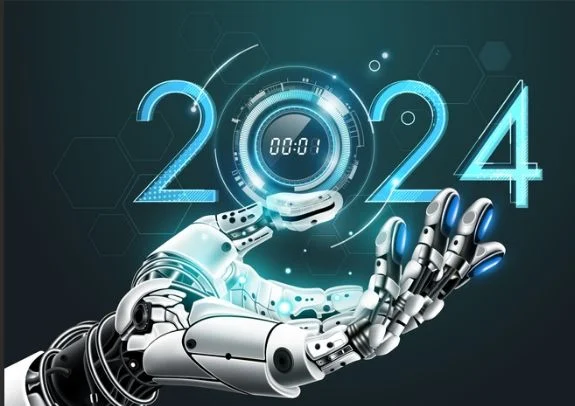As technology continues to evolve at a breakneck pace, staying ahead of the curve is more important than ever. The future holds a plethora of exciting advancements that promise to transform various aspects of our lives. Here’s a look at some of the most significant tech trends that are set to shape the future.
1. Artificial Intelligence (AI) and Machine Learning (ML)
AI and ML are poised to become even more integral to our daily lives. Advances in these fields will lead to more sophisticated AI applications, from improved virtual assistants and autonomous vehicles to AI-driven healthcare diagnostics and personalized learning platforms. These technologies will continue to drive innovation across industries, enhancing efficiency and creating new opportunities.
2. Quantum Computing
Quantum computing is set to revolutionize how we approach complex problems. Unlike classical computers, quantum computers leverage the principles of quantum mechanics to perform calculations at unprecedented speeds. This technology has the potential to transform fields such as cryptography, material science, and drug discovery, solving problems that were previously thought to be unsolvable.
3. Extended Reality (XR)
Extended Reality, encompassing Virtual Reality (VR), Augmented Reality (AR), and Mixed Reality (MR), is becoming increasingly prevalent. These immersive technologies are being used in gaming, education, training, and even remote work. As hardware becomes more advanced and affordable, XR will offer more seamless and engaging experiences, blurring the lines between the digital and physical worlds.
4. 5G and Beyond
The rollout of 5G networks is set to unlock new possibilities for connectivity. With significantly faster speeds and lower latency, 5G will enable the proliferation of Internet of Things (IoT) devices, smart cities, and autonomous vehicles. Looking ahead, research into 6G technology promises even greater advancements, potentially transforming global communication and connectivity.
5. Biotechnology and Genomics
Advancements in biotechnology and genomics are paving the way for breakthroughs in healthcare and agriculture. Techniques like CRISPR gene editing offer the potential to cure genetic disorders and enhance crop resilience. Personalized medicine, tailored to an individual’s genetic profile, is becoming more feasible, promising more effective and targeted treatments.
6. Renewable Energy and Sustainability
The push towards sustainability is driving innovation in renewable energy technologies. Solar and wind energy are becoming more efficient and cost-effective, while advancements in energy storage and smart grid technology are making renewable energy more reliable. The development of green hydrogen and other sustainable technologies is also playing a crucial role in reducing carbon emissions and combating climate change.
7. Autonomous Systems
Autonomous systems, including self-driving cars, drones, and robotic process automation, are set to revolutionize transportation, logistics, and manufacturing. These systems rely on AI and advanced sensors to operate independently, improving efficiency and safety. As technology continues to advance, autonomous systems will become more capable and widespread.
8. Blockchain and Decentralized Technologies
Blockchain technology is moving beyond cryptocurrencies and finding applications in various sectors, including supply chain management, finance, and healthcare. Its decentralized, transparent, and secure nature makes it ideal for these applications. Decentralized Finance (DeFi) is also gaining traction, offering innovative financial services that operate without traditional intermediaries.
9. Edge Computing
Edge computing is becoming increasingly important as the number of connected devices grows. By processing data closer to where it is generated, edge computing reduces latency and bandwidth use, enabling real-time applications such as autonomous vehicles and smart cities. This technology will play a crucial role in the continued growth of IoT and other data-intensive applications.
10. Cybersecurity Innovations
As technology advances, so do the threats posed by cyberattacks. Innovations in cybersecurity are essential to protect sensitive information and ensure the integrity of digital systems. Future trends include the use of AI for threat detection and response, quantum cryptography for secure communication, and more robust security protocols for IoT devices.
Conclusion
The future of technology is filled with exciting possibilities that promise to transform our world in profound ways. Staying informed about these trends is essential for navigating the dynamic landscape of the digital age. For more insights and updates on the latest tech trends, visit Infinite Byte, your go-to source for all things technology and AI. Embrace the future and be a part of the technological revolution!

Comments